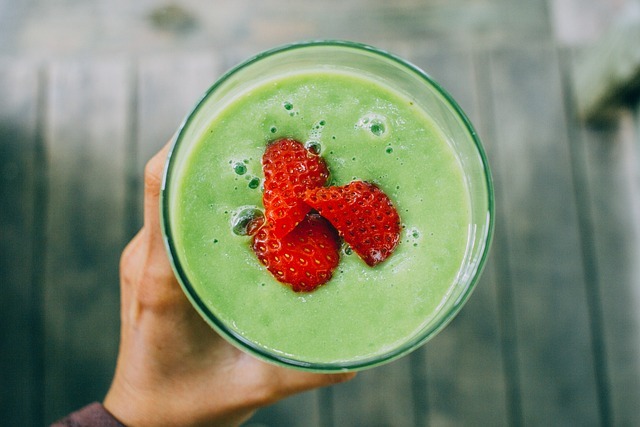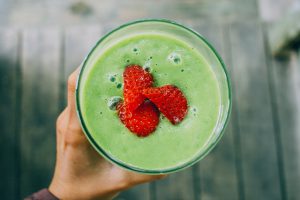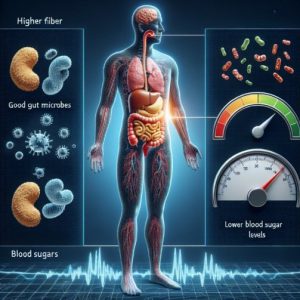
Harness the Power of Wheatgrass: Your Ultimate Health Guide To Health
Updated June 25, 2024
Introduction
Humanity has long sought nature’s most potent elixirs in the eternal quest for optimal health and vitality. This pursuit is not merely an individual endeavour but a collective phenomenon driven by the powerful forces of mass psychology. As social creatures, we are inherently influenced by the beliefs and behaviours of those around us, a concept that social psychologist Robert Cialdini calls “social proof.” This principle explains why specific health trends, like the current fascination with wheatgrass, can spread rapidly through society.
From the misty peaks of the Himalayas to the lush valleys of the Mediterranean, our ancestors have passed down wisdom about healing plants and herbs. This intergenerational knowledge transfer is a prime example of what evolutionary biologist Richard Dawkins termed “memes” – ideas that replicate and evolve across cultures and time. In recent years, one vibrant green powerhouse has captured the collective imagination of health enthusiasts worldwide: wheatgrass. Revered by some as a superfood par excellence, wheatgrass is now embraced by many seeking to elevate their well-being to new heights.
As we explore the potential of wheatgrass to nourish and heal the body, it’s crucial to approach this topic with an open mind and a willingness to challenge conventional thinking. In the spirit of out-of-the-box thinking, let’s consider the words of maverick scientist Rupert Sheldrake: “The biggest mistake that people make is assuming that the way things are now is the way things will always be.” This perspective invites us to question our nutrition and health assumptions and remain open to discoveries about the potential benefits and limitations of foods like wheatgrass.
A critical question arises amid this emerald elixir’s buzz: “Is wheatgrass gluten-free?” For the millions worldwide who follow a gluten-free lifestyle due to celiac disease, gluten sensitivity, or personal preference, the answer is of utmost importance. This question also highlights the power of collective beliefs in shaping individual health choices, a phenomenon that psychologist Irving Janis termed “groupthink.”
The Allure of Wheatgrass: A Mass Psychological Perspective
Wheatgrass, the young grass of the wheat plant known scientifically as Triticum aestivum, has been hailed as a nutritional powerhouse. Its rich, green hue hints at the chlorophyll, vitamins, minerals, and antioxidants packed within each blade. But beyond its nutritional profile, the allure of wheatgrass is deeply rooted in mass psychology and cultural narratives.
The popularity of wheatgrass can be understood through the lens of what psychologist Carl Jung called the “collective unconscious” – a shared, inherited reservoir of experiences and symbols that shape our perceptions and behaviours. In this context, the vibrant green of wheatgrass may symbolize life, renewal, and natural purity, tapping into our collective desire for health and vitality.
Moreover, the rise of wheatgrass as a health trend exemplifies what sociologist Everett Rogers termed the “diffusion of innovations.” Early adopters, often influenced by charismatic health gurus and compelling anecdotes, paved the way for broader acceptance of wheatgrass as a superfood. This process was accelerated by social media and digital communication, creating what network theorist Albert-László Barabási calls “scale-free networks” of influence.
Ann Wigmore, a pioneering holistic health practitioner of the 20th century, eloquently stated, “Wheatgrass juice is the nectar of rejuvenation, the plasma of youth, the blood of all life. The elements missing in your body’s cells – especially enzymes, vitamins, hormones, and nucleic acids can be obtained through this daily green sunlight transfusion.” Wigmore’s poetic description highlights the perceived benefits of wheatgrass and taps into our collective yearning for rejuvenation and vitality.
Dr. Yoshihide Hagiwara, a renowned Japanese scientist and health researcher, further emphasized the potential of wheatgrass, asserting, “Wheatgrass is one of the most powerful detoxifying agents on earth. It cleanses the body of heavy metals, pollutants and other toxins that may be stored in the body’s tissues and organs.” Hagiwara’s statement aligns with the growing societal concern about environmental toxins and the desire for natural detoxification.
However, in the spirit of out-of-the-box thinking, we must also consider the possibility of a placebo effect in the perceived benefits of wheatgrass. As neuroscientist V.S. Ramachandran states, “The line between reality and illusion is not always clear. Sometimes, believing is seeing.” This perspective invites us to examine the claims surrounding wheatgrass critically and to consider how our beliefs and expectations might influence its effects on our health.
Is Wheatgrass Gluten-Free?
Yes, wheatgrass is gluten-free. Gluten, a complex protein, is primarily found in the endosperm of wheat grains. However, wheatgrass is harvested at a young age, typically between seven to eleven days old, before the formation of grains and gluten. During this early stage, wheatgrass consists mainly of blade-like leaves and does not contain gluten, making it safe for individuals with gluten sensitivities or celiac disease.
The Nutritional Profile of Wheatgrass
Wheatgrass is a nutritional powerhouse with essential vitamins, minerals, and antioxidants. It contains:
1. Vitamins:
– Vitamin A: Contributes to healthy skin, vision, and immune function.
– Vitamin C: Supports the immune system, promotes healthy skin, and aids in wound healing.
– Vitamin E: Offers protection against cell damage.
2. Minerals:
– Iron: Vital for producing haemoglobin, which carries oxygen in the blood.
– Magnesium: Indispensable for muscle function, nerve function, and maintaining strong bones.
– Calcium: Plays a vital role in maintaining strong bones and teeth.
– Potassium is essential for maintaining proper electrolyte balance, muscle contractions, and nerve impulses.
3. Antioxidants:
Chlorophyll is a powerful antioxidant associated with anti-inflammatory and detoxifying properties. It also promotes healthy blood circulation and increases the body’s oxygen supply.
4. Protein:
– Wheatgrass contains moderate protein, making it a valuable addition to plant-based or vegetarian diets. Protein is essential for repairing and building muscles.
The Nutritional Powerhouse of Wheatgrass
Wheatgrass is celebrated as a superfood, offering a rich nutrient blend that bolsters health and fitness. It is particularly noted for its high content of vitamins A, C, E, and K, alongside a suite of B vitamins, which are crucial for immune function, skin health, and vision. These vitamins also possess potent antioxidant properties, helping to combat oxidative stress and cellular damage.
This plant is a good source of several essential minerals, including iron, which is vital for oxygen transport in the blood; magnesium, which is crucial for muscle and nerve function; calcium, which is necessary for strong bones and teeth; and potassium, which helps maintain electrolyte balance and muscle function. Additionally, wheatgrass provides zinc, copper, selenium, and phosphorus, further enriching its mineral profile.
Wheatgrass is low in calories but dense in nutrients, making it an excellent addition to weight management diets. It contains chlorophyll, a compound with potential anti-inflammatory and detoxifying effects, and is believed to enhance oxygenation in the body, which can benefit athletic performance and general vitality.
Though not abundant, wheatgrass contains all essential amino acids, making it a valuable protein source for plant-based diets. The protein and amino acids in wheatgrass support muscle repair and growth, which is particularly beneficial for those engaged in regular physical activity.
Incorporating Wheatgrass Into Your Diet
Wheatgrass can be seamlessly integrated into your daily diet through various forms, each offering a unique way to enjoy its health benefits.
Wheatgrass Shots: These are concentrated doses of wheatgrass juice, typically served in 1-ounce portions. They provide a quick, potent burst of nutrients and are available at health food stores and juice bars or can be made at home using fresh wheatgrass. The flavour is distinctly earthy and grassy, which some find refreshing, while others may need time to adjust.
Wheatgrass Powder This form is made by drying and grinding fresh wheatgrass into a fine powder. It’s versatile and can be mixed into smoothies, shakes, or other beverages without significantly altering their taste. Wheatgrass powder has a long shelf life and does not require refrigeration, making it a convenient option for regular use.
Wheatgrass Capsules: For those who prefer not to taste wheatgrass, capsules are an ideal choice. They encapsulate all the nutritional benefits in a form that’s easy to consume, especially for those sensitive to the plant’s strong flavour.
Detoxification and Digestive Benefits of Wheatgrass
Detoxification Benefits:
Wheatgrass is renowned for supporting natural detoxification processes, particularly with liver health:
– Chlorophyll in Wheatgrass: Known for its detoxifying properties, chlorophyll may help remove toxins, although its specific effects on liver detoxification need more research.
Antioxidant Support: Wheatgrass is abundant in antioxidants like vitamins C and E, which protect liver cells from oxidative stress and potentially enhance liver health.
Nutrient-Rich: Wheatgrass’s high nutrient content supports overall liver function and health, but conclusive scientific evidence is still needed to confirm its health benefits fully.
Digestive Health:
Wheatgrass contributes positively to digestive health, aiding in regular bowel movements and potentially reducing constipation risks:
Fibre Content: It provides dietary fibre crucial for a healthy digestive system. It helps prevent constipation and maintain regular bowel movements.
– Enzyme Support: Wheatgrass contains digestive enzymes like protease and amylase, which improve the digestion and absorption of nutrients.
– Alkalizing Properties: Its alkaline nature may help balance body pH levels, supporting optimal digestion, although more scientific evidence is needed to solidify this claim.
– Anti-inflammatory Effects: Preliminary studies suggest wheatgrass has anti-inflammatory properties, which might benefit digestive health by reducing inflammation, though further research is required.
Conclusion: Is Wheatgrass Gluten-Free?
In pursuing a healthier and fitter lifestyle, the significance of nutrition is paramount. Wheatgrass, laden with a rich blend of vitamins, minerals, antioxidants, and notable health benefits, is a formidable addition to your dietary regimen. Moreover, its gluten-free nature makes it a viable option for many individuals.
Wheatgrass is not a panacea but can significantly bolster your efforts towards enhanced health and fitness. Echoing the wisdom of Hippocrates, who famously stated, “Let food be thy medicine and medicine be thy food,” wheatgrass invites you to harness its nutritional benefits. Galen’s insights further reinforce this, as he recognized the importance of natural remedies in maintaining the body’s harmony. Avicenna, another great physician, also emphasized the value of preventive medicine, aligning perfectly with the proactive use of wheatgrass in daily health care.
As you integrate this vibrant green superfood into your routine, you tap into its potential to elevate stamina, assist in muscle recovery, aid in weight management, and boost overall well-being. Remember to initiate this addition to your diet gradually and consult a healthcare professional if you encounter any concerns or have pre-existing conditions. Following the advice of the most excellent physicians, listen attentively to your body and adjust your intake as needed. Explore the benefits of wheatgrass and unleash its power for a healthier, more vigorous you.
Discover a World of Fascinating Articles

How Can Stress Kill You? Unraveling the Fatal Impact

What is the General Rule Regarding Risk and Reward in Investing?

Is Wheat Grass Gluten Free? Exploring the Hidden Truths of This Superfood

Glucose Syrup vs. Corn Syrup: A Sweet Showdown

Elixir for Vitality: Embrace Better Health with Non-Hydrogenated Oil

Fibonacci Sequence in Real Life: Nature’s Code Revealed

Unveiling the Perfect Substitute for Glucose Syrup

Raw Honey vs Honey: Unraveling the Colossal Difference in Benefits

Discover the Benefits of Fruits That Help Weight Loss

Alpha-Ketoglutarate: Pinnacle of Vitality for Longevity and Optimal Health

Lowering Blood Sugar: A High-Fiber Diet Seems Essential

Deep Value Investing: Forget That, Focus on Smart Moves

Stress Kills: Evolve or Perish

Inductive vs Deductive Arguments: Strategies for Sound Reasoning



